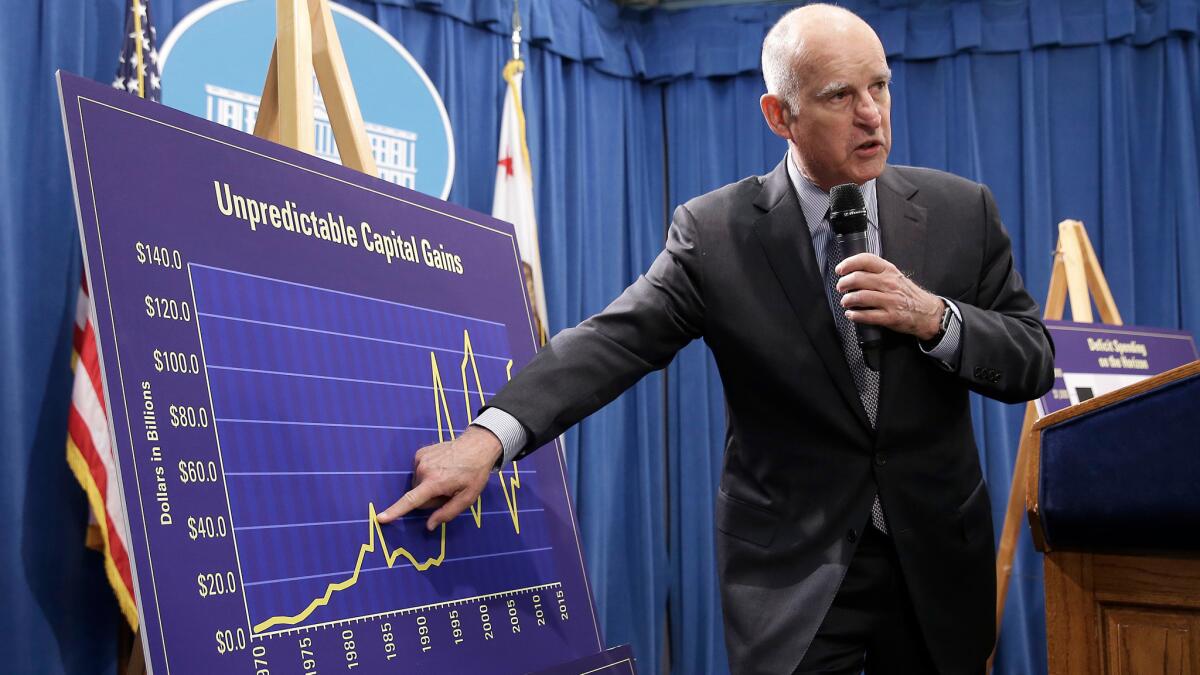California budget’s to-do list includes helping the homeless and protecting orcas

Lawmakers may have sent a new budget to Gov. Jerry Brown last week, but their work isn’t done. They continue to hash out details on a variety of related measures that are being wrapped into the $171-billion spending plan.
But some issues have nothing to do with dishing out taxpayer money, such as an item tucked into the budget agreement to formally ban animal performances featuring orcas. And there are wonkier topics, such as an effort to give grocery stores a reprieve from recycling fees. Both proposals are contained in trailer bills, budget-related measures that in recent years have become mired in debates over policies that don’t always receive the same public vetting applied to other legislation.
“There is major policy in these trailer bills, and the problem is that these major policies will not be subject to in-depth public scrutiny and hearings,” said state Sen. Jim Nielsen (R-Gerber), vice-chairman of the Senate Budget Committee.
Also lingering is a $2-billion bond to build housing for California’s homeless who suffer from mental illness, a plan that has yet to be approved by the Assembly or the state Senate.
The bond would be funded with money from Proposition 63, a surcharge on taxpayers earning more than $1 million a year that was approved by voters in 2004. The proposal, based on a January plan drafted by Senate Democrats, would finance up to 14,000 new housing units.
Because the measure involves borrowing money, it requires a two-thirds vote, which means Democrats need to get at least a few legislative Republicans on board.
Assembly Republican leader Chad Mayes of Yucca Valley said his caucus has some concerns but he declined to be more specific.
“We’re going to continue to keep working,” Mayes said.
There have also been local concerns about how the money will be distributed. Although the California State Assn. of Counties has endorsed the measure after some tweaks were made, not all of them are happy.
Sign up for our daily Essential Politics newsletter »
Most of the bond money would be allocated through a grant program, and Assemblywoman Cheryl Brown, a Democrat, said her home county of San Bernardino is concerned that the rules would “impede our ability to qualify for the funds necessary to serve the diverse geographic needs of San Bernardino County’s homeless population.”
Even though there are still some outstanding issues, a spokesman for the governor said that Brown plans to sign the budget by his Monday deadline.
One of the non-financial issues on the table is whether the state should restrict captivity of orcas, the iconic killer whales featured at SeaWorld. Facing the sharply critical documentary “Blackfish” and declining attendance, the theme park announced this spring it would stop breeding captive whales.
Although SeaWorld announced in March that it would stop its breeding program, Assemblyman Richard Bloom (D-Santa Monica) authored a bill that would end orca performances and captive breeding, and would prohibit the import or export of orcas in the state. Bloom also served on the Legislature’s budget conference committee, which approved adding the orca issue into the spending plan two weeks ago without any public debate.
Even so, the orca-related budget bill remains in limbo in the Senate.
“The Senate without explanation has not included the orca protection language in their version of the budget bill,” Bloom said in a statement. “Millions of people around the world, including SeaWorld, now agree that captive breeding of these magnificent creatures must end.”
Another budget effort that remains unresolved would protect grocery stores from being caught in a bind over recycling regulations. The stores are required to accept used cans and bottles, a function that has been handled by on-site recycling centers. However, the company that runs those recycling centers is closing many of its locations, which means grocery stores need to start collecting the cans and bottles themselves or face fines.
A provision to address the issue was removed from the budget during earlier negotiations, but a new version is being worked into one of the remaining budget-related trailer bills.
“We’re looking for any kind of relief right now,” said Aaron Moreno, senior director of government relations for the California Grocers Assn.
Under the language in Proposition 25, the voter-approved measure that made it easier to pass on-time state budgets, trailer bills are not subject to the same June 15 deadline as the main spending plan. And that means it’s unclear when all of this year’s budget-related issues will be settled.
“The trailer bills drag on and on,” Nielsen said.
Times staff writers Melanie Mason and Jazmine Ulloa contributed to this report.
Twitter: @chrismegerian
ALSO:
California lawmakers approve $171 billion state budget
Budget gridlock is a thing of the past in California, thanks to voters
Updates on California politics
Updates from the campaign trail
More to Read
Get the L.A. Times Politics newsletter
Deeply reported insights into legislation, politics and policy from Sacramento, Washington and beyond. In your inbox three times per week.
You may occasionally receive promotional content from the Los Angeles Times.











